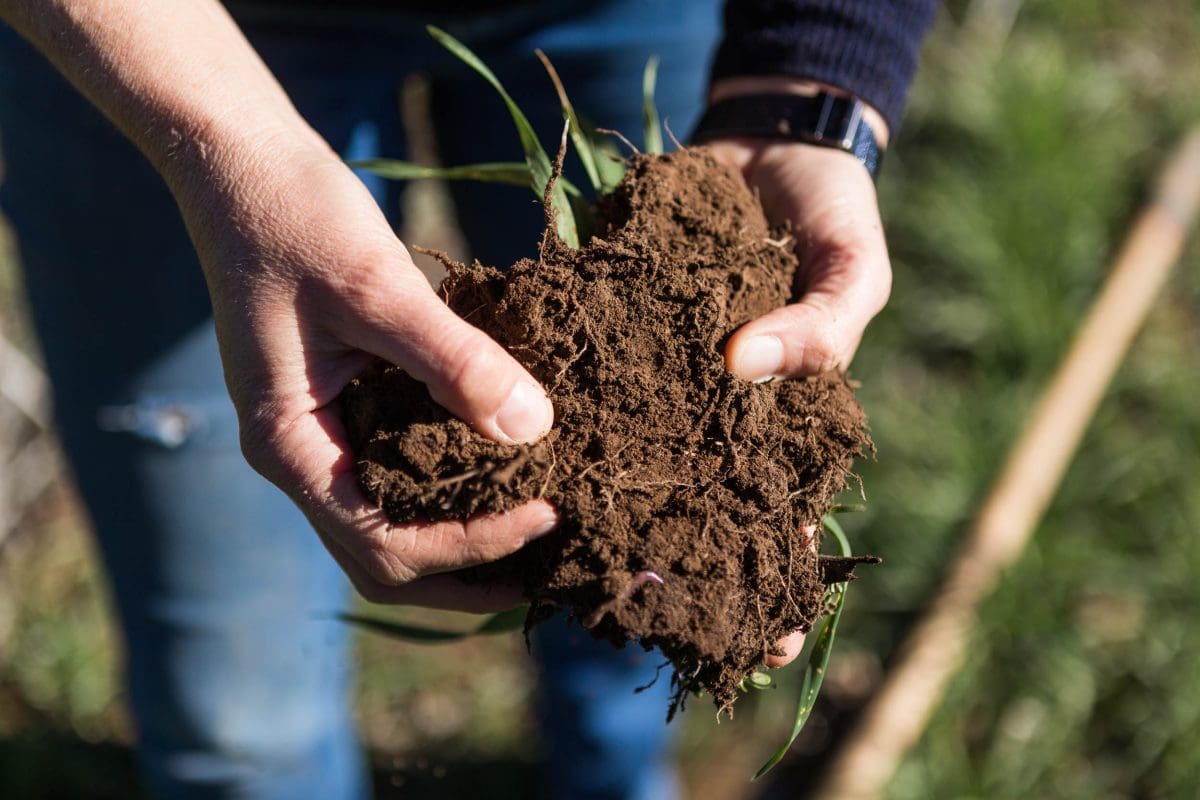
Regenerative agriculture was the key focus of a recent webinar hosted by the UWA Public Policy Institute. Photo: Soil CRC
SHOULD the term ‘regenerative agriculture’ be changed to encourage more growers to adopt the practices encompassed within the emerging industry?
This was the topic that was debated by speakers during the University of Western Australia Public Policy Institute’s recent webinar, Sustainable food systems: food production & security in a changing climate.
Western Australian-based Wheatbelt Development Commission director regional development, I-Lyn Loo, called the term “divisive”.
She said using different language may reduce the level of pull-back from growers and others in the agricultural industry.
“In the end, regenerative agriculture is quite a contentious term still,” Ms Loo said.
“It is getting more mainstream now… as we are moving into the early adopter phase.
“There are challenges in accepting that term.”
She said often the term implies that growers need to change their practices in order to consider themselves good land managers.
“I feel that our farmers, they love their land, and they are so connected to it.
“I think unfortunately we have talked about the narrative in the wrong way or a different way that challenges that value.
“So, if you become regenerative, you were considered a bad land manager previously, so therefore you have to change.”
Ms Loo said this was never the intent of the regenerative farming movement and, if a language change will alter perceptions, then it may be necessary to affect change.
“If regenerative agriculture is divisive language, then we may have to move away from it into more outcomes-based conversations, like natural capital accounting, talking about carbon sequestration into the soil and soil health and recovering biodiversity.”
Ms Loo is currently completing a project to investigate drivers for regenerative agriculture in Australia as part of the Winston Churchill Trust Fellowship program.
The project is also looking into ways to incentivise adoption of these practices, such as through consumer behaviours and price premiums.
A relatively new farming movement, regenerative agriculture includes practices that works to improve soil health, carbon storage and biodiversity as well as limit external inputs.

Wide Open Agriculture managing director Ben Cole
Wide Open Agriculture (WOA) founder Ben Cole called the practice “farming with nature and not against it”.
Located in WA, WOA is an Australian leader in the regenerative agriculture movement with all farmers contracted to provide produce to the company pledging to follow these farming practices.
He told the webinar that WOA sees the movement as an “important alternative” to traditional farming systems.
“Conventional industrial farming has played an incredible role for producing food and has, since its introduction in the ‘60s, brought immense gains but…a lot of those gains have become quite wasteful,” Dr Cole said.
“We believe farming systems are starting to turn and shift and farmers themselves and agronomists and input companies are starting to think: Is there another way of producing healthy nutrient-rich food?
“Perhaps there may be some reductions in yield but the overall impact looking at the wider holistic impact is dramatically reduced.”
Mr Loo said in her discussions with Wheatbelt growers, she believes these practices are widely used, just not under the official banner of “regenerative agriculture”.
“I think, talking about Western Australian farmers, a lot of them are doing it anyway.
“The practices like minimum till, keeping cover crop, incorporating livestock, it is part of the system, it is part of what they do anyway.”

I-Lyn Loo is investigating why growers adopt regenerative agriculture practices. Photo: Winston Churchill Trust
Practices to outcomes
Alongside potentially re-thinking the terminology, Ms Loo said she is also seeing a shift from defining success by increasing land management practices to quantifying improved soil and biodiversity outcomes.
She said this is a positive step considering not all regenerative agriculture practices will suit every property.
“More and more what I am seeing globally is people are moving from defined practices, because they are quite different from farm to farm, place to place.
“They are defining it as outcomes based.
“They are talking about improving soil health including carbon sequestration, recovering biodiversity and some of them include things like… sustainability of the communities and of course the sustainability of the businesses.”
Dr Cole said he sees that the focus should also be on practices that are resulting in measurable outcomes for the soil and the wider environment.
“Whether that is around the word regenerative, we don’t really care, but it is around looking at practices that are making tangible impacts on climate change and biodiversity.”
Global pressure
From multi-national companies and government policy, regenerative agriculture practices are increasingly becoming part of the conversation around food production.
Ms Loo said food companies General Mills and Nestlé are examples of organisations pledging to increase the amount of ingredients produced at regenerative farms.
In 2019 General Mills committed to advance regenerative agriculture on 1 million acres of farmland by 2030 as part of an overall climate and water policy.
Nestlé also pledged to source 50 per cent or 14 million tonnes of its ingredients through regenerative agricultural methods by 2030.
She said governments are following the lead of companies and introducing sustainable agriculture and regenerative farming targets and police.
Ms Loo said one key example of this was a chapter in the free-trade agreement between the European Union and New Zealand which committed to sustainable food system principles.
“This is a very fascinating development for me; it is not just the food companies, now we are moving into policies.”
As part of the webinar event, Ms Loo and Dr Cole were also joined by UWA School of Agriculture’s Caitlin Moore and OzHarvest chief executive officer and founder Ronni Kahn AO.

Why do we even need a brand name for farm management? It’s a complete load of rubbish….endless marketing terms that get changed every five minutes. Just get on with it and run your own patch of dirt how you see fit.
The description ‘regenerative agriculture farming or farmer’ is divisive, as it is used by many of its champions to promote their ideological view of how farming should be practiced. It has no scientifically-proven ecosystem functions, soil health, food quality, animal welfare, emissions reduction and social welfare outcomes that distinguish it from those outcomes generated on farms by owners and managers who do not wish to be associated with the ideology. The only way regenerative agriculture can distinguish itself is to adopt its own rules and regulations along the lines required of participating farmers for certified organic and biodynamic produce. That is unlikely to happen, as most professional farmers and graziers have been participating in best practice, science-based management for decades. They continue to evolve improved methods as climate change, technology, genetics, markets, business resilience and consumer demands dictate, without being labelled as regenerative. Many have data to demonstrate their management is achieving positive outcomes for the environment and food quality. The problem for food and fibre retailing businesses and government policy aligning with regenerative agriculture ideology will be how to convince consumers that the methods farmers identified as regenerative are using have superior environmental, livestock welfare, business resilience and social outcomes than other farmers using best practice, science-based methods. If they cannot distinguish this they are using the term for greenwash purposes.